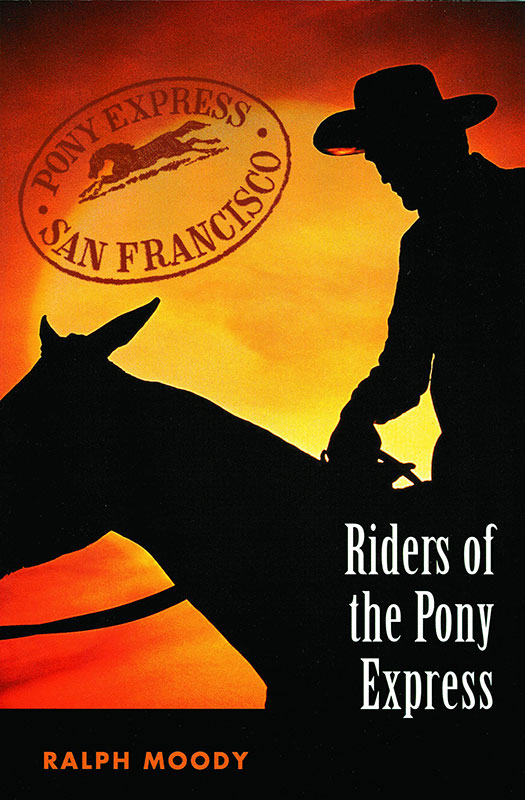Riders of the Pony Express, Ralph Moody (1958, republished 2004 University of Nebraska Press)
 This is a short book, and one I was disinclined to like after reading the first chapter. But in the end it was fun read, though it seemed directed more at a middle-grade reader.
This is a short book, and one I was disinclined to like after reading the first chapter. But in the end it was fun read, though it seemed directed more at a middle-grade reader.
The first chapter states flatly that Russell, Majors & Wadell started the Pony Express out of a feeling of obligation to save the Union by keeping California closer to the northern states. That meant an express mail service over the central route. Moody also characterizes Russell, the man who more or less forced the Pony Express on his two partners, “knew the western country thoroughly.”
In the book he wrote ten years later, Stagecoach West, Moody characterizes Russell as “an incorrigible wheeler dealer” and “an extremely dangerous business associate”(p. 169) and that rather than patriotism, “It seems more likely that [Russsell] ha set his ambition doggedly upon securing a million-dollar mail contract, and that, as in all his other promotions, he was determined to attain his goal by any means available, regardless of how injurious his action might be to his associates and creditors.” (pg. 190). As for knowing the western country, Moody, quoting another source, writes, “An aristocrat by nature . . . [h]e never wore wore buckskin or homespun, his clothes were always carefully tailored, he never ‘roughed it,’ never hunted or fished, never drove an ox team, avoided sweat, hardship, and toil with his hands.” (p. 140). In “Death of a Gunfighter,” Dan Rottenberg states, “Although this pint-sized promoter was widely hailed as the ‘Napoleon of the West,’ Russell was actually born in Vermont, rarely ventured farther west than Leavenworth, and functioned most comfortably among Washington politicians and New York bankers.” (p.66).
All of which led me to read the rest of the book skeptically. In the end, it wasn’t really necessary. The book is largely a fictionalized story of the “race” between the eastbound and westbound riders on the first run of the Pony Express, with the finish line at the Bear River, east of Salt Lake City. With that as its structure, the book really takes on the form of a boys’ adventure tale (and reads something like the dime novels blamed for spreading much of the disinformation about the Pony Express) with freezing blizzards, blinding gales, Indian ambushes, stout-hearted young pony riders who apparently are the only people of the time who knew the trails as well as the Native Americans they were trying to outsmart. Moody was a horseman, and as such, includes a lot of detail about some of the individual horses bought for the Pony Express (Mustangs in the west, Kentucky Thorobreds on the eastern portion) and how the riders interacted with them.
So, if you can get past the jingoism (“One of America’s greatest strengths is her ability to produce men capable of meeting every national emergency.”), spurts of purple prose (“Sylph responded like the Thoroughbred she was. Pouring out the last reserve of her strength, she quickened her pace until the sound of he hoofs rolled across the prairie like vibrant music.”), it’s a fun little book.